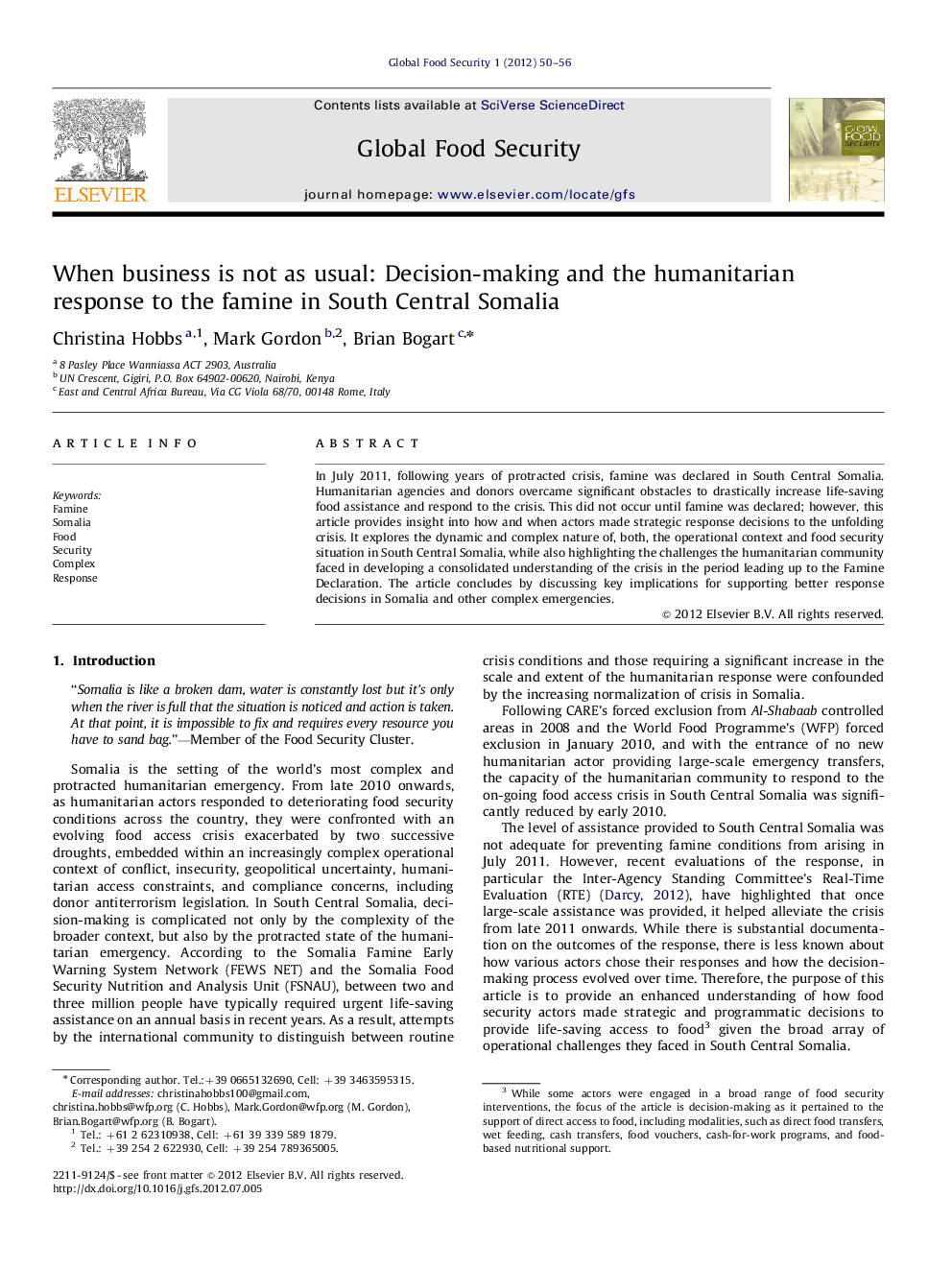| Article ID | Journal | Published Year | Pages | File Type |
|---|---|---|---|---|
| 1047622 | Global Food Security | 2012 | 7 Pages |
In July 2011, following years of protracted crisis, famine was declared in South Central Somalia. Humanitarian agencies and donors overcame significant obstacles to drastically increase life-saving food assistance and respond to the crisis. This did not occur until famine was declared; however, this article provides insight into how and when actors made strategic response decisions to the unfolding crisis. It explores the dynamic and complex nature of, both, the operational context and food security situation in South Central Somalia, while also highlighting the challenges the humanitarian community faced in developing a consolidated understanding of the crisis in the period leading up to the Famine Declaration. The article concludes by discussing key implications for supporting better response decisions in Somalia and other complex emergencies.
► In early 2011, operational uncertainties and associated risks affected decision-making. ► Humanitarian actors faced difficulty determining how and when to drastically alter responses. ► There was insufficient harmonization of response decisions among humanitarian actors. ► The Famine Declaration triggered a transformation of the food assistance response. ► Timely life-saving assistance requires strong coordination and pre-existing operational capacity.
